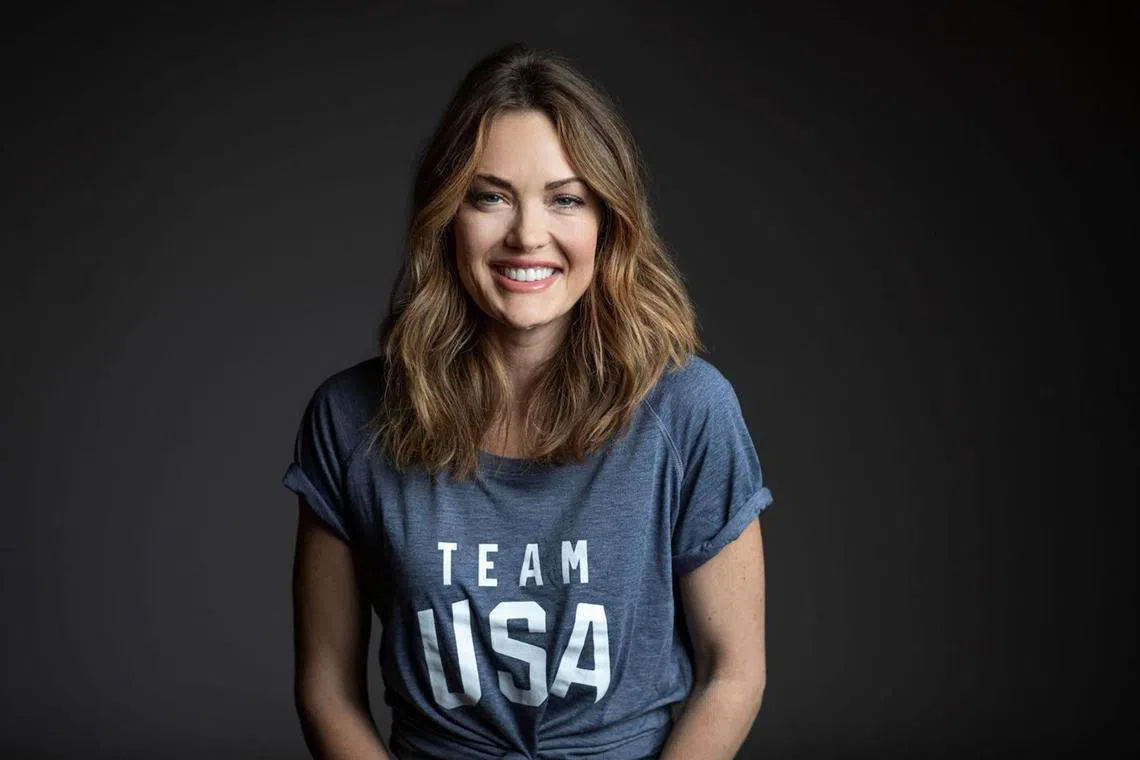What Toyota got for the US$835 million it spent on the Olympics
The car company is thought to have signed the biggest ever deal with the Games’ organisers. Here’s why it did so
[PARIS] “I get emotional when I talk about Toyota,” says Amy Purdy, addressing a roomful of the brand’s employees and partners just before the opening ceremony of the Paris 2024 Olympic Games. “I always get dirt in my eyes,” she jokes, wiping tears.
A snowboarding fanatic, she lost both her legs below the knee to bacterial meningitis at age 19, along with her kidneys and spleen. Doctors gave her a 2 per cent chance of surviving the infection, yet all she could think to ask them was when she could hit the slopes again. “I was more interested in that than walking,” she says.
Just six months later, Purdy was skidding through the snow on a makeshift board she had cobbled together in her garage. She started a foundation to help other disabled people get into action sports and became a motivational speaker.
Then, a chance meeting with a Toyota executive led to support from the brand that would propel her to Paralympic glory and three medals that few of our species will ever touch, let alone win.

In turn, Purdy’s story helped kick off Toyota’s own remarkable journey into the big money world of Olympics sponsorship at every level. If her tale of triumph makes the tears flow, Toyota’s spending on the Games makes the jaw drop.
It’s thought to have signed a record deal with the International Olympic Committee (IOC) in 2015, spending a rumoured US$835 million to join The Olympic Partner (TOP) programme.
Navigate Asia in
a new global order
Get the insights delivered to your inbox.
In Paris, it lavished nearly 2,700 electric, hybrid or hydrogen fuel cell vehicles on the Games – more than the number of cars it has sold in Singapore all year. It created, built and delivered 250 Accessible People Movers – large electric buggies to transport athletes, officials, volunteers and spectators with disabilities, without figuring out a business case for them or even knowing what it will do with them after the Games.
With an eye on September’s Paralympic Games, it is making hundreds of personal mobility devices available, including 200 battery-powered “e-pullers” that convert manual wheelchairs into electric ones.
All that, just for the rights to use the Olympics symbol. It doesn’t even include the other expenditure needed to exploit the association, whether in advertising or other activities, such as Toyota’s sponsorship of 250 athletes from 49 countries.
In fact, companies spend up to three additional dollars for every dollar they pay for branding rights, says Chris Renner, president, Stellar Partners, a sports marketing consultancy. Yet, they do it for good reason.
“When people see the five rings, they know exactly what that represents,” Renner tells The Business Times. “If you win a gold medal in athletics in the world championships, it still doesn’t add up to what you win as an Olympic champion. That’s what matters.”
Renner points to Samsung as a good case study of just how much it matters. The brand signed on with the 1998 Winter Olympics in Nagano when it was known for “selling cheap white goods”, Renner says. “But what they tracked after that, starting with Sydney (in 2000), was their brand value with Interbrand (a consultancy) as well as their share price. And they could show almost a direct correlation between when they started activating the Olympics and when those two parameters went up.”
But unlike Samsung, Toyota had little need to grow its visibility. It was already the world’s top carmaker by sales volume when it signed its IOC deal. Instead, the Olympic celebration of human potential seemed to resonate enough with Akio Toyoda to make him spearhead the deal as president and CEO. He is, according to Toyota staff, Amy Purdy’s biggest fan, thanks to her story of personal growth overcoming personal adversity.
Latching onto the Olympic Movement as a way to galvanise Toyota through changing times, Toyoda launched the company’s first global slogan in 2017, “Start Your Impossible”, which he often invoked when speaking of his company’s need to evolve into a sustainable mobility provider, one that keeps people moving not only on the roads but inside the home, as well.
Toyota-sponsored athletes bolstered the message by sharing stories of their own “impossible” journeys. At the campaign’s launch, Tatyana McFadden, born paralysed from the waist down, described how she went from propelling herself on an orphanage floor with only her hands to winning 17 Paralympic Games medals.
With reports emerging in May this year that Toyota will decline to renew its sponsorship deal when it comes to an end next year, the Paris games could be the climax of its involvement with the Olympic Movement.
Toyota is still the top-selling carmaker by volume, so it may never be clear exactly what it gained by pouring a record sum into the Games. If nothing else, it has touched the lives of hundreds of athletes. In all likelihood, Akio Toyoda will hope that their example has touched the company in turn.
Decoding Asia newsletter: your guide to navigating Asia in a new global order. Sign up here to get Decoding Asia newsletter. Delivered to your inbox. Free.
Copyright SPH Media. All rights reserved.


